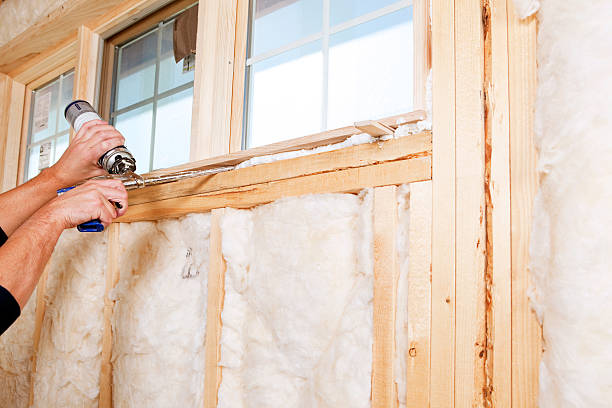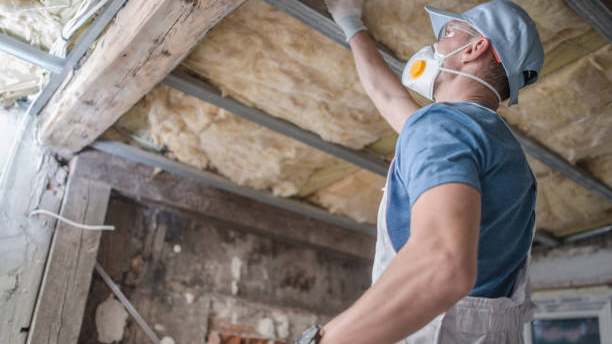What is Rock Wool? A Comprehensive Guide
Discover the essentials of rock wool with FUNAS's comprehensive guide. Learn what rock wool is and how this versatile material can enhance insulation in various applications. Perfect for energy efficiency, soundproofing, and fire resistance, rock wool is an innovative solution. Explore our guide for in-depth insights on using rock wool for optimal performance.
What is Rock Wool?

What are the Cons and Pros of Rock Wool?
Pros of Rock Wool
-
Fire Resistance: Rock wool is incombustible, which makes it ideal for use in fire-resistant insulation. It can handle heat up to 1000 degrees Celsius and as such suitable for fire resistance walls, ceilings and floors.
-
Soundproofing: Because of its texture, rock wool has good sound absorption characteristics that make it suitable for use in sound insulation in structures and industries.
-
Thermal Insulation: Rock wool has better thermal insulating characteristics and that means that it can keep warm during the winter and cool during the summer.
-
Moisture Resistance: Rock wool is non-absorbent to water, does not support mold, mildew, or rot formation, and thus can have a longer service life in damp conditions.
Cons of Rock Wool
-
Itchy Sensation: Rock wool has a fibrous structure, and when one is handling it, it may result in skin irritation and itching; hence, when installing it, one should wear protective gloves and clothing.
-
Cost: In terms of price, rock wool may be slightly more expensive than other types of insulation materials, such as fiberglass; thus, it may be important for cost-sensitive projects.
-
Environmental Impact: Rock wool is derived from natural volcanic rocks, but manufacturing the product involves the use of large amounts of energy, hence environmentally sensitive.
-
Rock Wool vs Fiberglass
| Feature | Rock Wool | Fiberglass |
| Material Composition | Made from basalt and diabase rocks | Made from fine glass fibers |
| Thermal Insulation | Superior thermal insulation properties | Effective but generally less efficient than rock wool |
| Fire Resistance | Highly fire-resistant, can withstand extreme temperatures | Fire-resistant but less effective at high temperatures |
| Soundproofing | Excellent sound absorption properties | Good soundproofing but not as effective as rock wool |
| Moisture Resistance | Does not absorb moisture, resistant to mold | Absorbs moisture and can promote mold growth if not properly sealed |
What is Rock Wool Made Out Of?
How is Rock Wool Used?

How to Install Rock Wool Insulation?
-
Fire Resistance: Rock wool is incombustible, which makes it ideal for use in fire-resistant insulation. It can handle heat up to 1000 degrees Celsius and as such suitable for fire resistance walls, ceilings and floors.
-
Soundproofing: Because of its texture, rock wool has good sound absorption characteristics that make it suitable for use in sound insulation in structures and industries.
-
Thermal Insulation: Rock wool has better thermal insulating characteristics and that means that it can keep warm during the winter and cool during the summer.
-
Moisture Resistance: Rock wool is non-absorbent to water, does not support mold, mildew, or rot formation, and thus can have a longer service life in damp conditions.
Conclusion
FAQs
How do l reduce the heat in my parked car? | FUNAS Guide
can you install insulation yourself, What insulation keeps heat out? | FUNAS Guide
What is the best heat insulator for cars? | FUNAS Guide

How to Insulate New Construction: A Comprehensive Guide
What is the best insulation forextreme temperatures? | FUNAS Guide
service
How does your technical support work?
Our technical support team is available to guide you through every stage of your project—from product selection and design to installation. We provide expert consultation to ensure that you get the best insulation solution for your needs and can assist with troubleshooting if needed.
What is your shipping and delivery process like?
We offer reliable logistics services for insulation material wholesale, both domestically and internationally. Our team ensures secure packaging, timely shipping, and real-time tracking so that your order reaches you in perfect condition and on schedule.
FAQ
How to start a consultation?
You can contact us through our website, phone, or email. We will arrange a professional staff to discuss your needs about best thermal insulator and how we can help you.
What is the typical delivery time for custom orders?
Our daily production capacity is 800 cubic meters. Delivery time varies depending on the complexity of the insulation material wholesale order, but we can deliver large quantities of customized products within 4-6 weeks after the approval date, and small quantities can be delivered within 15 days.
How do I choose the right insulation for my project?
Our team can help you choose the best material for heat insulation based on your specific needs, such as thermal resistance, acoustic properties, and environmental conditions.
You might also like



This product has passed the national GB33372-2020 standard and GB18583-2008 standard. (The product is a yellow liquid.)
Anggu foam phenolic glue is a kind of glue with corrosion resistance, low odor, high strength and excellent brushing property. Can be sprayed for construction with fast surface drying speed, long bonding time, no chalking and convenient operation.

This product has passed the EU REACH non-toxic standard, ROHS non-toxic standard. (The product is black glue.)
Anggu 820glue is a low-odor, high-strength quick-drying glue; Fast drying speed, long bonding time, no powder, non-toxic.
Discover effective strategies for insulating new construction with our comprehensive guide by FUNAS. Learn key techniques and materials to enhance energy efficiency, reduce costs, and ensure comfort in your new building. Dive into expert insights on how to insulate new construction and make informed decisions that promote sustainability and durability. Elevate your construction projects with FUNAS.
Discover the future of energy efficiency with FUNAS's "Top Thermal Insulation Materials List for 2025." Our expertly curated list highlights innovative solutions perfect for your construction and renovation needs. Stay ahead of the curve with cutting-edge insulation technology designed for optimal thermal performance and sustainability. Trust FUNAS for advancements that redefine comfort and efficiency in every project.
Leave a message
Have any questions or concerns about our products? Please leave us a message here and our team will get back to you promptly.
Your queries, ideas, and collaboration opportunities are just a click away. Let’s start a conversation.


















































